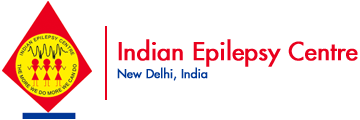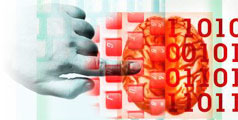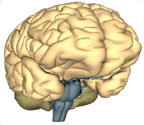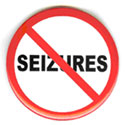
PLEASE CALL: 011-41614141
& 45695542
(Between 11:30 AM - 5:30 PM)

 |
FOR APPOINTMENTS PLEASE CALL: 011-41614141 & 45695542 (Between 11:30 AM - 5:30 PM) |
 |
What is Epilepsy
The 'fits' or 'seizures' can lead to loss of awareness or consciousness, disturbances of movement, sensation (including vision, hearing and taste), autonomic function, mood and mental function. Anyone can be affected by seizures at any age. Birth injuries, infections including worm infestations, vascular disease, tumors and subtle developmental abnormalities of the brain are the important causes of epilepsy. Many patients have epilepsy without any such detectable brain disease. In most such cases epilepsy is thought to be due to hereditary factors. Though epilepsy need not be feared more than diabetes or hypertension, yet there is social stigma as well as myths attached to it. These baseless apprehensions stem from the widespread ignorance about epilepsy. However, the truth is, that epilepsy can be treated. Epilepsy is almost always treated by using anti-epileptic drugs (AEDs). As per WHO, 3 out of 4 people in the world with epilepsy do not receive treatment at all, mainly due to economic and social reasons. Epilepsy is a unique disorder, that if not treated, can profoundly influence people's ability to participate fully in society. With proper treatment, patients of epilepsy can also lead a normal, healthy life and actively contribute to the society. Various studies have shown that about 60-70% of newly diagnosed children and adults with epilepsy can be successfully treated with one simple anti-epileptic drug. About 15-20% patients can be helped by the use of more than one drug and some new anti-epileptic drugs that are slightly expensive. The seizures are poorly controlled in about 5-10% of patients who need to be investigated for possible surgical treatment for their epilepsy. Epilepsy surgery in carefully selected patients can even cure epilepsy. With a correct treatment approach, most patients with epilepsy can enjoy life as much as any healthy person can. They can lead full, productive lives... they can continue their studies, go out to work or meet people, even pursue any personal interests that they may wish to. |
Myths & Facts  |